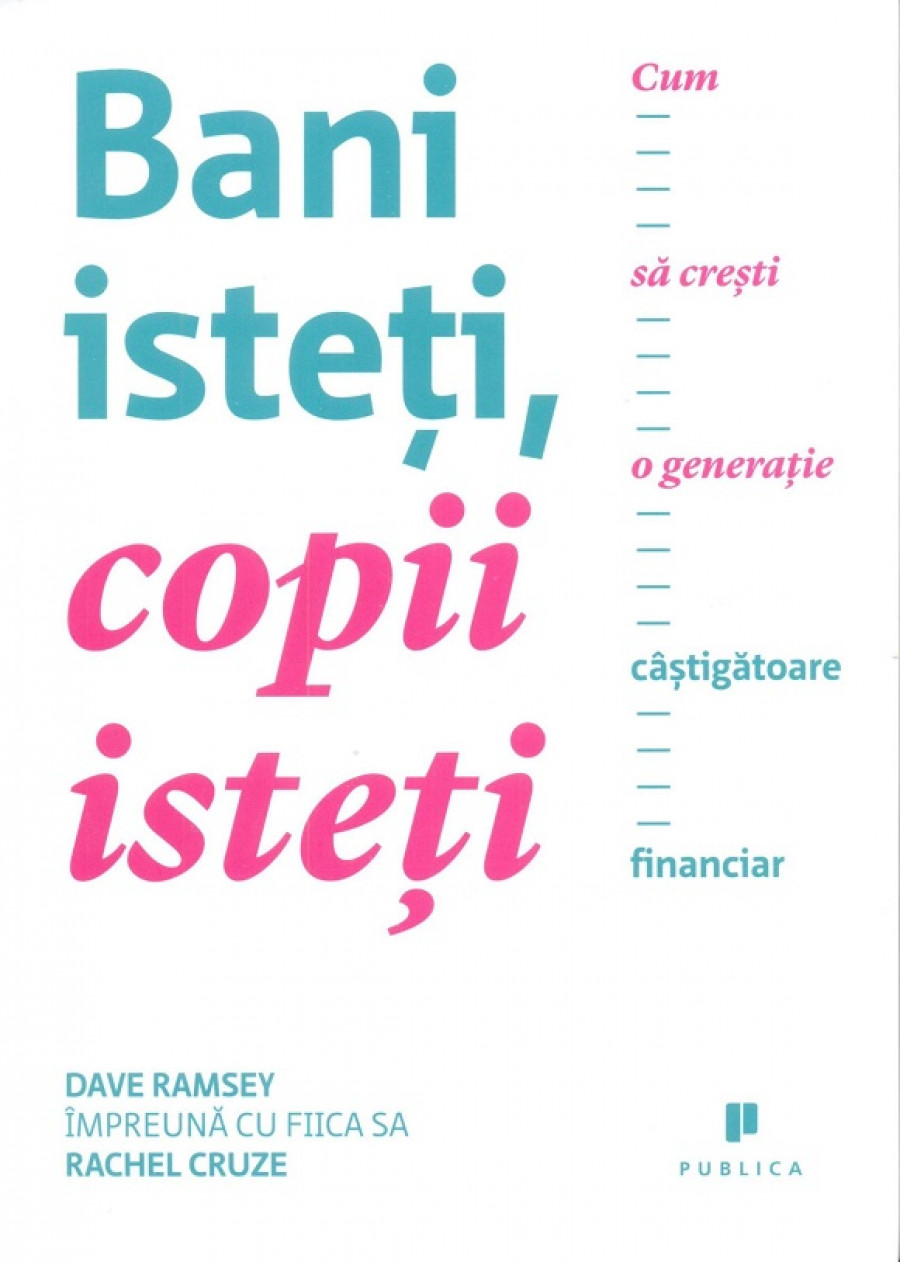“Money hurts.” Almost everyone resonates with these two words. The role of money in our lives is important, perhaps even overwhelming. For some, money means life. Unfortunately, despite the importance of money, many people do not have the basic skill to win and use it.
Accidentally and without too many expectations, I started reading the book Smart Money, Smart Kids: Raising the Next Generation to Win with Money. The authors, father and daughter, Dave Ramsey and Rachel Cruze, were totally unknown to me at the time.
As I said in my essay “Running after the Meteor of Success”, I am not a great fan of personal development “literature”. But the book of Ramsey and Cruze seemed to me very realistic, compared to other books of this type. The recipes contained in this book are, in my opinion, feasible, handy and effective (at least in part). The authors do not promise to teach us how to become millionaires, but they only try to help us escape the “chain of debts” and to manage our resources well. That's why I sincerely recommend this book.
Perhaps the 280 page volume (published by the “Publica” Publishing House, in 2015) should have been reduced by half. The basic ideas could have been highlighted with fewer “illustrations” and “true stories”. Yet, leaving aside this shortcoming, I believe that this book comes in handy as guidebook.
Although the subtitle suggests that we are dealing with a book dedicated to parents who want to raise financially savvy children, I believe that it can also be a useful tool to parents who do not have a well-defined perspective on how to manage their money, as well as to teenagers, young people and to anyone who wants to improve his or her “financial life”.
Perhaps some of the issues dealt with by what we may see as a handbook on personal finance management are more relevant for the North American society, rather than for the Romanian readers. Nevertheless, many of the financial principles described by the authors of the book in question can be adapted and applied from Hong Kong to Chişinău and further to Patagonia, simply because they are basic, common sense rules that anyone can assume.
“You will either intentionally teach your children how to handle money or they will live in your basement until they are forty”, Ramsey warns us right from the start in his book (see page 13). This warning that might scare the parents and children alike.
The first “financial secret” the authors speak about is (SURPRISINGLY!) Work. Kids have to discover the value and importance of work and be given the opportunity to earn a few bucks by performing simple house chores. Lessons learned this way will prepare them for their adult life and will keep them away for from laziness and unrealistic expectations in life (the father and the daughter, as authors of the book, give us examples from their own life, which I’m sure the readers will find to be very inspirational).
How many times have we been facing emergencies requiring quick “financial fixes”? Well, this time the rescuing principle is Money Saving. Can a child learn how to save money? Usually, children seek for immediate rewards. They want it and they want it the and there. Ramsey and Cruze tell us not only that kids can be taught how to save money, but that they must necessarily do so. “When children are in the six to thirteen-year-old age range, they are able to understand the money saving concept” (p. 72).
If hard work and money saving are linked to one’s financial success and welfare, what could donating and giving others some of your own income possibly do with success and welfare? This is an interesting and challenging chapter of the book, written by two people who not only donate others some of what they gain, but who - as members of a church – give a tenth of their earnings to God. And despite that, they do not complain about lacking money, they are debt-free and are financially “secured”.
Budget is another topic tackled in the book - the authors write about the importance of the monthly budget, about the lists of goals and priorities and the benefits of establishing a budget for our income. On the other hand, they also say it briefly and clearly: “Debt is a four-letter word.” “There is no verse in the Bible that says anything good about debts” (p. 145). Debts (credits) are a form of slavery, as the authors say, and I personally believe that there is no exaggeration in their statement. But whether they are right or wrong or whether their arguments are solid or weak, that remains for you to find that out when reading the book.
A delicate subject, but which is closely linked to money, is the conflict between our content and our discontent, an issue we are often visiting, if we think of our excessive preoccupation with “bargains”, “discounts”, “unprecedented experiences” etc.
The book Smart Money, Smart Kids is (or may be) a useful tool in the hand of the shopping generation.
Effective income management should be everyone’s goal, but money does not have to become an obsession or a personal god, on whose altar we burn our own lives. The “recipes” presented by Ramsey and his daughter are not things we could not think of ourselves. But, if we read them again and again and talk about them with our families they may become our own money handling recipes, helping us improve our life.
I would like to end this essay by quoting the famous lyrics of one of Holograf’s songs: “Money does not shut up/ Money is made / Everything is in its hand / Money talks.” It would be good to see money speaking the way we want them to speak, and not the other way around.
Handle your money, but don’t let yourselves handled by it!
Author Florin Bică













